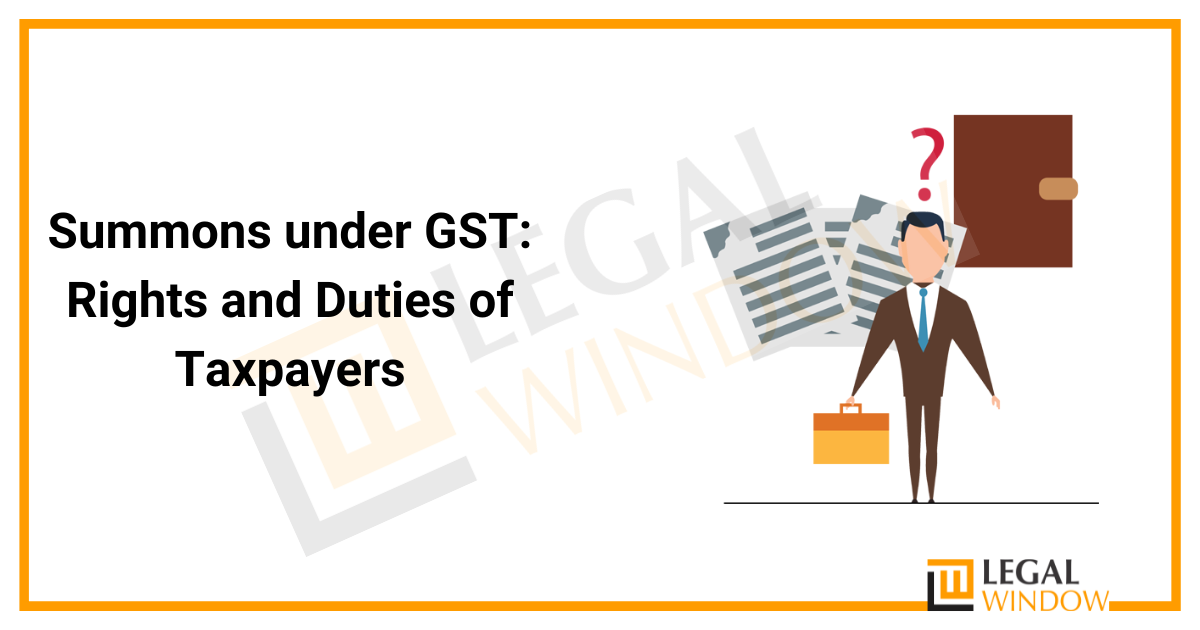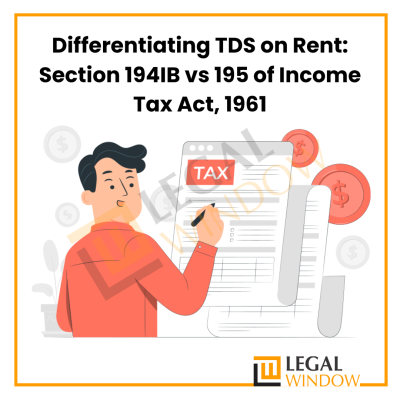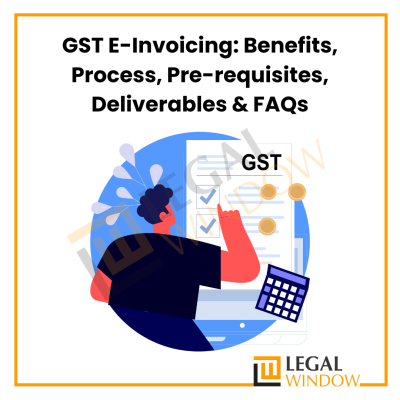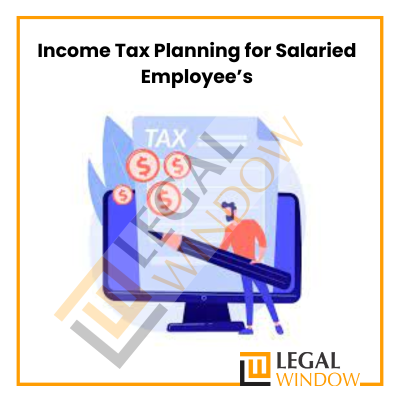 GST is a complex subject matter according to most people and over time these complexities only increased. With the rise in difficulty for taxpayers to easily understand the concept of GST, owning adequate licenses, etc. problems also grew for the tax authorities in recovering taxes.
GST is a complex subject matter according to most people and over time these complexities only increased. With the rise in difficulty for taxpayers to easily understand the concept of GST, owning adequate licenses, etc. problems also grew for the tax authorities in recovering taxes.
Lately, many companies have been receiving summons because of such failure in compliance with the law for some or other matter. Under the GST law, the officers are empowered by section 70 of the CGST Act, 2017 to summon the appearance of any person if it is required for an inquiry to produce any documents or to record statements.
Persons who have received summons are duty-bound to appear before the GST officers. Issuing the summons and collecting relevant information is the beginning of the proceedings under GST law.
Therefore, it becomes important for taxpayers to be aware of their rights and duties while getting summoned under GST and how to deal with a such summons.
| Table of Content |
Abstract
GST officers can issue summons to any taxpayer to call for their appearance. Several companies, their employees, businesses, and concerned chief managing persons are usually summoned by the tax authorities to appear before GST officers in several cases.
Such individuals are summoned to appear before the GST authorities and provide relevant information that the GST officials seek. But because individuals are yet not completely settled with the concept and the procedure, they get nervous when they receive a summons or have to take appropriate steps according to the situation.
The purpose of this article is to detail the taxpayers about their rights and duties when they receive summons under GST.
Meaning of Summons under GST
Summons are orders issued by government administrative bodies or courts. These orders are issued to any individual with the purpose to appear physically before a court or before concerned officers.
Section 70 of the CGST Act, 2017 empowers GST officers to call any individual to appear before them to produce any documents or to record statements during the investigation. In case any person fails to appear before the concerned officer, then they may face penalties.
Summons issuing Authority
While receiving summons under GST, taxpayers must first determine the authority issuing it. Audit authorities cannot issue summons under GST. The DGGI (Directorate General) of the GST Intelligence is empowered to carry out the functioning of the issue of summons under GST law. DGGI investigates the violations of the GST and this is the highest rank of the investigative agency.
Persons receiving Summons
Section 70 of CGST Act, 2017 empowers the officials to summon any such person whose appearance is considered necessary for;
- Providing evidence,
- For producing the documents, or
- For furnishing any such other material thing that is required to complete the inquiry.
In simple words, the GST officers can issue summons to any such individual that carries out the operations of a taxpayer. To escape such situations taxpayers can consult experts.
Duties of Taxpayers when summoned under GST
Summon proceedings under GST are equivalent to judicial proceedings as are provided under the Code of Criminal procedure, 1973. Therefore, taxpayers should be cautious while dealing with tax officials.
GST officers during the summons proceedings may ask the directors or employees or any person in charge of the Company to record statements and produce the relevant documents.
- Submit Documents: The taxpayers should follow the directions of the authorities when they are required to submit any document. They need to be conscious when asked to provide necessary documents as the proceeding of summons and investigation under GST is similar to the procedure under the general prevailing law of the country that is followed in the courts of law. It is the duty of taxpayers to furnish the relevant documents before the authorities in case of default on their part under GST.
- Furnish Relevant Information: It is important that taxpayers provide the GST officers with true answers to the raised queries and all such necessary information which is in their knowledge. Taxpayers must not furnish false statements before the authority as it may attract an offense under the Indian Penal Code, 1860 for which they can be tried to mislead Government officials.
Therefore, it is the duty of the taxpayers to accurately provide all the information that the tax officers ask for. This will safeguard the taxpayers from any default or eventualities.
- Appear before Authority: The taxpayers must not ignore the summons and should duly appear before the authority or the concerned officer. It is the duty of the taxpayers to follow the necessary guidelines envisaged under the summons which have all the information with respect to venue, date of appearance, cause, material information, default by the company or individual and etc.
- Do not Conceal Material Information: The taxpayers must not conceal any material information from the officials. The information which has serious nature and can affect the direction of the investigation must be put forward.
- Follow Legal Procedure: Although, there are several rights provided to the taxpayers with it taxpayers are also duty-bound to follow the due legal procedure. The individuals who are summoned must not escape from their duty to follow the provisions of law as are provided under the CGST Act, 2017.
Rights of Taxpayers when summoned
As discussed above, taxpayers must follow the legal procedure of investigation duly. However, the taxpayers also hold several rights to avoid harassment by GST officials. Following are the rights by which taxpayers can defend themselves against the summons under GST.
- Right to Refuse Appearance at odd hours: There are necessary rules that regulate that the taxpayer can refuse to appear and cooperate at odd hours. These regulations safeguard the rights of the taxpayers from being summoned and called to appear before the authority at odd and uneven hours.
- Right against Language of Summons: The language of summons must not cause taxpayers stress and leave them feeling threatened. It should not consist of language that is aggressive in nature. The officials must keep the language of the summons self-explanatory and not confusing or threatening.
- Right to Retract Statement: In case taxpayers feel frightened or forced by unnecessary pressure put by the officials. And the taxpayers feel their submissions would be wrongly taken as submission/evidence in further proceedings, in such cases, taxpayers can retract and withdraw their earlier statements and replace them. This right protects taxpayers from actions that tax authorities can take against them because of wrong or improper submissions.
- Right to Remain Silence: If the taxpayer is unsure about the question that is asked, they have an option of remaining silent. This right protects taxpayers from the state of confusion and mistaken statements.
- Right to Cross-Examine the submission: The GST officials may try to influence the person who has been summoned. This influence can be done by referring to negative remarks made by any coworker, company dealer, or vendor. In such circumstances, the taxpayer has the right to cross-examine the statement with the taxpayer against whom such remarks are made to verify the statement(s) in question.
- Right to check authorization: The taxpayers that are facing an investigation can crosscheck the authorization of the officer in case such an officer is coming for inspection. Such an officer must not be below the rank of a Joint Commissioner.
- Other important Rights: The taxpayers are not expected to recall everything when giving or writing a statement. This right allows the taxpayers to be free to refer to any relevant papers or Books of Accounts.
 Conclusion
Conclusion
Taxpayers often feel pressurized when summons are issued to them. Sometimes they also succumb to the pressure of the officers and the authorities. It is therefore important for the taxpayers to know their rights and duties while getting summoned. As awareness of the rights and appreciation of the duties can easily reduce difficulties that may arise during summon procedure. Therefore, it is essential that a taxpayer is conscious of their relevant rights and duties.
CA Pulkit Goyal, is a fellow member of the Institute of Chartered Accountants of India (ICAI) having 10 years of experience in the profession of Chartered Accountancy and thorough understanding of the corporate as well as non-corporate entities taxation system. His core area of practice is foreign company taxation which has given him an edge in analytical thinking & executing assignments with a unique perspective. He has worked as a consultant with professionally managed corporates. He has experience of writing in different areas and keep at pace with the latest changes and analyze the different implications of various provisions of the act.
Categories
- Agreement Drafting (23)
- Annual Compliance (11)
- Change in Business (36)
- Company Law (148)
- Compliance (90)
- Digital Banking (3)
- Drug License (3)
- FEMA (17)
- Finance Company (42)
- Foreign Taxation (6)
- FSSAI License/Registration (14)
- GST (120)
- Hallmark Registration (1)
- Income Tax (202)
- Latest News (34)
- Miscellaneous (165)
- NBFC Registration (8)
- NGO (14)
- SEBI Registration (6)
- Section 8 Company (7)
- Start and manage a business (21)
- Startup/ Registration (130)
- Trademark Registration/IPR (40)
Recent Posts
About us
LegalWindow.in is a professional technology driven platform of multidisciplined experts like CA/CS/Lawyers spanning with an aim to provide concrete solution to individuals, start-ups and other business organisation by maximising their growth at an affordable cost.








